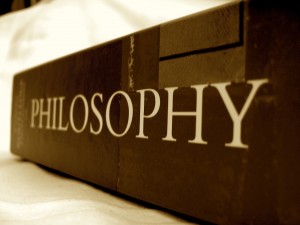7 Reasons Why Studying Philosophy of Education is Important

Philosophy in this context connotes a person’s attitude to life – considering the description of the way(s) an individual responds to circumstances, events, beliefs, issues and the likes. It is commonly said that science gives knowledge, but only philosophy gives wisdom. That’s why etymologically we say the term was derived from two Greek words – philo meaning “love” and sophia meaning “wisdom”.
Education (i.e. a concept that deals with affective, cognitive and psychomotor domains of man), on the other hand, in its original sense deals with the process of acting in order to lead out and manifest fully all the potentialities of individual personality. Hence, philosophy of education is an applied form of philosophy that deals with the subject matter of education.
Now, let’s ask our individual selves: what are the values of studying this philosophy of education? This guide has the answers you seek.
Instructions
-
1
Clarification of Pedagogical Issues
Since philosophy involves critical examination carried out by a person on his/her own, educational philosophy will therefore help pedagogists (i.e. teachers, educational researchers, and school authorities) to have clarification of various implicit and explicit educational issues. -
2
Consistency of Educational Views with Other Spheres of Life
The study of philosophy of education aids man to probe into the totality of things surrounding the existence of education in a society. It in fact enables stakeholders in schools to hold views in education that are consistent with other domains of human and non-human life. -
3
Becoming a Great Influence in Making Educational Policies
The study of Philosophy of Education helps one (especially a teacher) influence educational policies under which s/he operates by partaking in theoretical discussion about educational issues and problems. -
4
Development of Organisational Skills
The knowledge of philosophy of education enables teachers and educational researchers to organise all their experiences in the field of morality, politics, psychology, religions, linguistics, etc via critical thinking commonly aided by logic. -
5
Battling with challenges of improving and changing the society
It is imperative for nation builders like teachers and teachers-in-training to properly understand philosophy of education in order to increase their knowledge of day-to-day changes in their environment. -
6
Penetrating thinking ability
The knowledge of philosophy of education allows educationists to think critically about what they do, and why and how they do them. For example, teachers are expected to be witty enough to understand the best way to penetrate a pupil’s mind in such a way that he/she would be interested in the teacher’s subject regardless of the previous impression of the subject.
It aids teachers in creating conducive cognitive atmospheric conditions during the teaching and learning activities. -
7
Discovery of alternative dimensions of meaning of education and its practices
Philosophy of education allows you to discover alternative dimensions of meaning that conventional wisdom have missed in guiding theory and practice in education.
This discovery will help you tackle and solve a lot of complicated educational problems and challenges. -
8
Summary
In sum, philosophy of education, be it Pre-Socratic, Socratic or modern, is designed majorly to easy the smooth running of any educational activity planned to be carried out by an individual or group in a society.
Because philosophy and education are interwoven – interdependent and interrelated, some scholars have convincingly argued that philosophy is the backbone of education as it aids the cognitive domain of man to actively support the growth and development of self and other fellows.
Hence, education cannot exist without philosophy as philosophy too cannot survive without education. Juxtaposition of these two concepts leads to the birth of Philosophy of Education as a discipline – objectively coined to cater for daily advancement of education in any given society.




